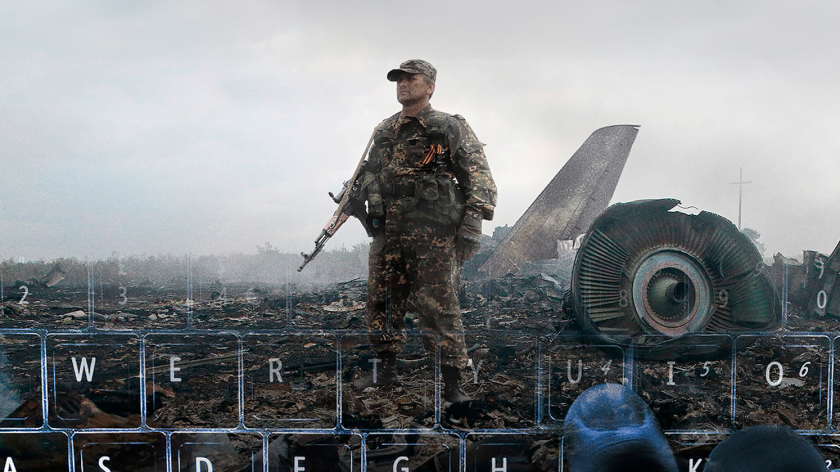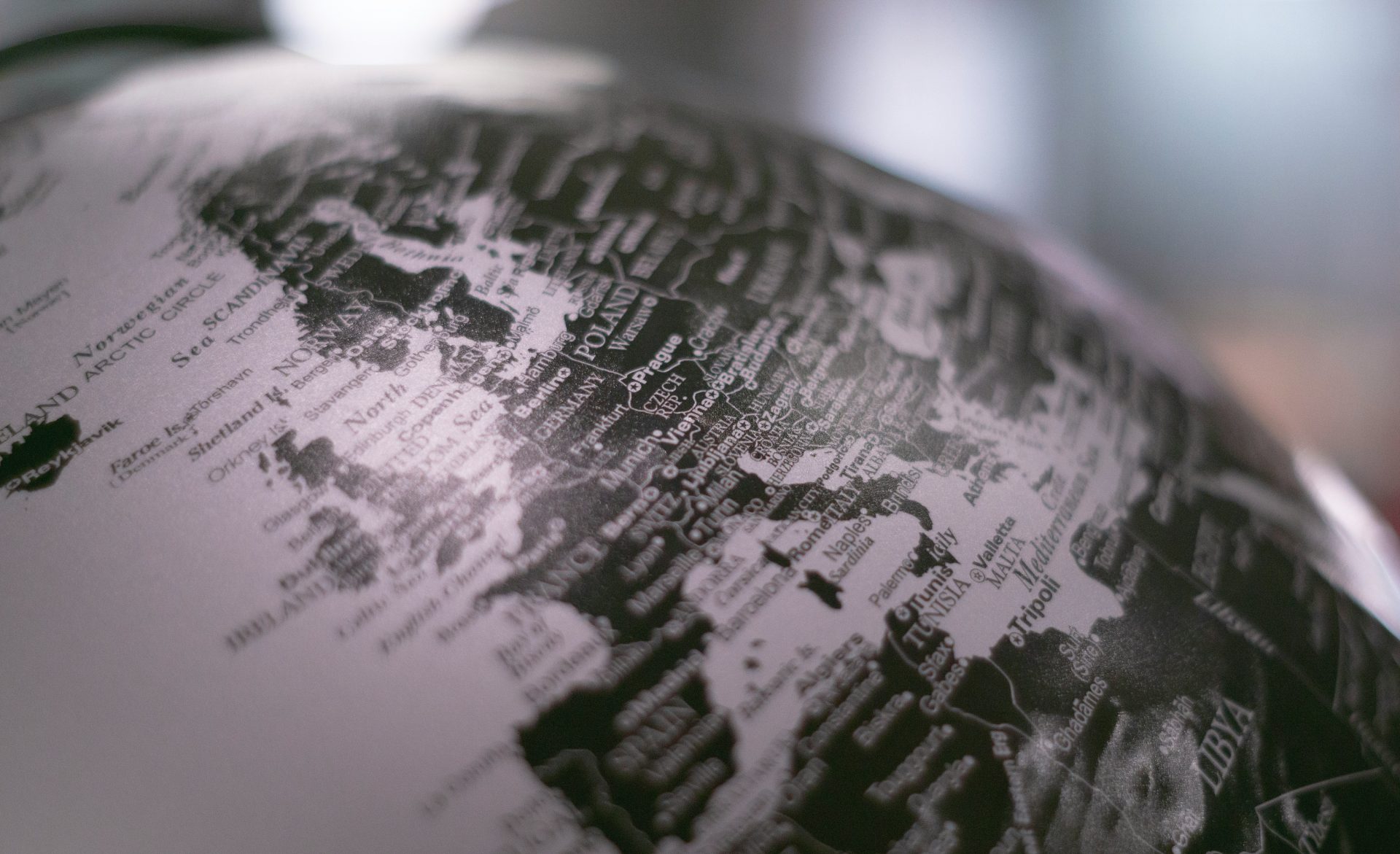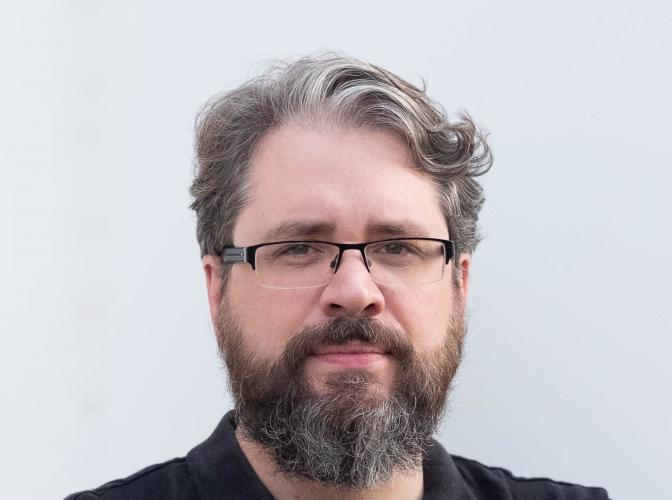Fighting the spread of online disinformation: an interview with Bellingcat founder Eliot Higgins
-
 Movie poster 'Bellingcat: Truth in a Post-Truth World'.
Movie poster 'Bellingcat: Truth in a Post-Truth World'.
From investigating the use of chemical weapons in Syria to searching the truth about the downing of MH17 over Ukraine: Eliot Higgins has done it all - from behind his computer in Leicester. On Thursday, he will receive the Treaties of Nijmegen Medal for his independent investigative collective, Bellingcat, at the Stevenskerk.
‘I’ve not been to Nijmegen yet,’ says Eliot Higgins, sitting at the other end of the computer screen, at home in Leicester. ‘I have been to the Netherlands quite a bit, but I’ve not been there.’ While Nijmegen will be a first this week, when Higgins is set to receive the Treaties of Nijmegen Medal, over the last thirteen years, Higgins has been virtually everywhere.
He was in the middle of the Syrian Civil War, back in 2011, identifying weapons that could be linked to war crimes. He’s been to Ukraine, investigating the downing of the Malaysia Airlines Flight 17 by Russia in 2014, and, in recent years, he’s been to Moscow, chasing down Russian agents involved in the widely reported poisoning attacks on former Russian military intelligence officer Sergei Skripal and his daughter Yulia and, later, Russian opposition leader Alexei Navalny. All from behind his computer screen, sitting at home in Leicester, just like he is now.
Online investigation
Higgins and his team at the investigative journalism collective Bellingcat are pioneers when it comes to online fact-checking and so-called open-source intelligence (OSINT). In comparison to closed sources that can’t be accessed by the general public, OSINT is based on sources that everyone can access and check themselves. Examples including Facebook posts, Instagram pictures, and videos on YouTube. ‘Bellingcat’s mission is to ultimately get everyone doing open-source investigation,’ Higgins says. ‘But it originated from me arguing with people on the internet back in 2011.’
Back in 2011, the Syrian Civil War had just started, and Higgins was an administrative office worker in Leicester. ‘I was watching lots of YouTube videos coming from Libya and Syria, and I was trying to figure out if they were real or not,’ he explains. Until he one day went on Google Maps trying to geolocate some of the videos he saw. And succeeding.
He posted his findings on the messaging board of The Guardian, before creating his own blog. In 2014, Higgins founded Bellingcat. The same year, he and his team proved that the Syrian regime had used chemical weapons on civilians. With Bellingcat’s entire investigation based on open-sources. All done from behind a computer screen.
Google restaurant reviews
One of the most recent cases at Bellingcat involved an Irish gangster who runs a large cartel. ‘While he was on the run, he was still posting reviews on Google for restaurants and places that he ate at,’ Higgins explains. ‘So, we were able to track his movements and use photographs that he posted and that other people posted at the same time to show who he was meeting with and extract details from that.’
Higgins’s work is a reflection of the technology that has changed the world in the last fifteen years. ‘When I look at the changes since the introduction of the iPhone in 2007, how that led to the development of smartphone apps, online platforms, social media and different ways to share information,’ Higgins says. ‘Bellingcat and the work we do in open-source investigation couldn’t be done without that.’
Even if the same environment that has given rise to Bellingcat has also accelerated precisely the disinformation Higgins and his team are working against – and the people that benefit from churning it out. It’s very easy to use a misrepresented or generated image and get retweets. And it’s a lot harder to do investigations. But our work has also led to real accountability and change,’ he says.
Artificial intelligence
Worrisome are the new realms of online disinformation nevertheless, Higgins says. Especially AI. While AI has become a tool for Bellingcat as well (‘ChatGPT makes a very good sounding board for ideas. It’s saving me from boring a staff member.’): ‘In terms of information, it’s a nightmare. It’s really, really bad. Because the way social media platforms are handling AI at the moment is not sufficient. You can share an AI-generated image, get 10,000 retweets, and then six hours later, you get the community note (that the image has been AI generated, ed.) that no one reads.’
‘In terms of information, Artificial Intelligence is a nightmare’
For Higgins, when it comes to labelling AI content, it’s a question of platform responsibility – but also a question of something larger: ‘I think there’s a lack of recognition of the massive social shifts that we’re going through when it comes to the way that we consume and interact with information. My daughter is 12 years old and I think every single person she knows has a smartphone and uses social media.’ For Higgins, that’s where especially the younger generation is going to interact with news. ‘They aren’t going to turn 18 years old and suddenly pick up a newspaper and start reading that.’ This means that, for Higgins, governments need to understand that social media is here to stay – and look at how information travels through it.
The way Higgins sees it, this goes beyond teaching young people the skills to identify misinformation and look for the truth: ‘We need to show that there’s value to the truth,’ he explains. ‘If you’re telling people to look for the truth, and then when they find the truth, there’s no change, then that will fuel distrust in authority because they will see them not valuing the truth whatsoever.’
Getting involved
Since its official start in 2014, Bellingcat has been undoubtedly successful at both finding the truth and holding authority accountable. And some of Bellingcat’s earliest members have since spread the ‘Bellingcat method’ to other news outlets. One of them the Dutch investigative journalist Christiaan Triebert, now a Pulitzer Prize winner and reporter at The New York Times.
Belling the cat
The name ‘Bellingcat’ stems from the English idiom ‘belling the cat’, based on a fable where a group of mice agree that the best way to be safe from the approaching cat is to put a bell on its neck, just to fail at the task because no mouse volunteers for the task.
So how does one hold authority accountable to the truth? To begin with, Higgins emphasises, everyone can get involved. The forty fixed staff members at Bellingcat are presently supported by a vibrant community of volunteers on Discord (online platform for messaging, voice and video calls, ed.), counting around 27,000 members. One of them perhaps the next Christiaan Triebert. Triebert, after all, was a university student when he approached Higgins, wanting to investigate the downing of the Malaysia Airlines Flight 17, one of the group’s most famous cases.
‘Christiaan was a good example of just getting involved. He was really interested in the subject and started digging into it.’ A certain degree of obsessiveness can help with that too, Higgins says. ‘Find something that you really care about, look at the tools, look at the way you can investigate something. Don’t just look for someone on the internet that you can argue with and tell them they’re wrong. You can argue with someone on the internet and tell them they’re wrong, but if you can’t prove it through research, then you don’t have a strong position or opinion to begin with.’
Anxiety
Of course, proving certain people wrong doesn’t come without a risk. In 2022, it became public that Bellingcat’s Russia investigator Christo Grozev had been placed on Russia’s most wanted list. He has since left Vienna, where he had been living with his family, because of security concerns. Not an isolated incidence, according to Higgins: ‘Another colleague published a story in partnership with a local news organisation and they pretty much immediately had to leave the country because the government started cracking down on everyone involved in the story.’ Bellingcat is prepared to take quick action to get its members out of harm’s way, Higgins says. Some countries, Higgins simply doesn’t visit.
‘And we also provide psychological support for our staff members,’ he explains. Doesn’t that take a toll on his own mental health? ‘I think, I’ve always been quite lucky because I just have terrible anxiety,’ Higgins explains. ‘Like really, really bad anxiety. And because of the work of Bellingcat, it kind of forced me to be out on stage a lot. Which really helps grow my self-confidence. So, whilst I have been seeing a lot of this horrible stuff and dealing with these issues, it’s also had this kind of positive impact on myself.’
‘Bad actors rely on fear to stop people from challenging them’
It’s never a question of being safe or not being safe, it’s a question of being careful, he says. But what’s the alternative? ‘If you just step back and say, ‘I’m not doing this thing’, you’re just leaving the space open for those bad actors to do the things they want to do. And they’re relying on that. They rely on fear to stop people from challenging them. So, if you give into fear, then you’re giving into them and that’s not a position I’m willing to take.’
And just like that, Higgins keeps belling the cat. Just like in Syria, Russia and Ukraine. From behind his computer screen, at home, in Leicester.
Radboud Reflects
On Wednesday evening, Eliot Higgins will be part of ‘The Future of Truth’ evening programme in the Stevenskerk, where he, journalists and researchers will discuss truth and news in the digital age. The event is organised in collaboration with Radboud Reflects, with some tickets still available via Eventbrite. Students attend for free.
This Thursday, Higgins will receive the Treaties of Nijmegen Medal. Registrations for the event on the 18th of April are now open.





